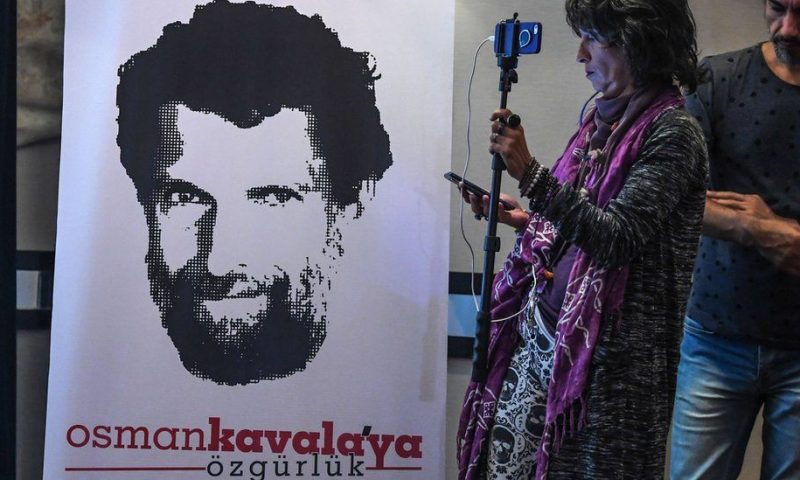Tensions between Turkey and 10 Western countries including the US have eased, days after the Turkish president threatened to ban their ambassadors.
Recep Tayyip Erdogan ordered the expulsions after the envoys called for a jailed activist’s release last week.
But on Monday, the countries involved said they would not interfere in Turkey’s affairs.
An adviser to Mr Erdogan told the BBC the president welcomed this and that the issue was almost settled.
BBC Middle East correspondent Tom Bateman said the president’s move appeared to defuse a fresh diplomatic crisis with Western powers concerned, though its underlying causes remain.
The dispute flared when the embassies of the US, Germany, Canada, Denmark, Finland, France, the Netherlands, New Zealand, Norway and Sweden issued an unusual statement calling for the release of jailed philanthropist Osman Kavala.
The 64 year old has been in jail without a conviction for four years over protests and a military coup attempt in 2016.
Mr Kavala denies any wrongdoing and critics of the Erdogan government say his case is an example of a widespread crackdown on dissent.
The Council of Europe, Europe’s main human rights watchdog, has given Turkey a final warning to heed a European Court of Human Rights ruling to free Mr Kavala pending trial.
President Erdogan was enraged by the ambassadors’ intervention.
“I gave the necessary order to our foreign minister and said what must be done,” he told a crowd on Saturday. “These 10 ambassadors must be declared persona non grata at once.”
Persona non grata – meaning an unwelcome person – can remove diplomatic status and often results in expulsion or withdrawal of recognition of envoys.
But the president appears to have stepped back from that decision after the US Embassy and others in Turkey issued statements as he entered a cabinet meeting.
The embassies cited part of an international treaty that says ambassadors have a duty to not interfere in the domestic affairs of their host country.
“The United States notes that it maintains compliance with Article 41 of the Vienna Convention on Diplomatic Relations,” the US Embassy said on Twitter.

